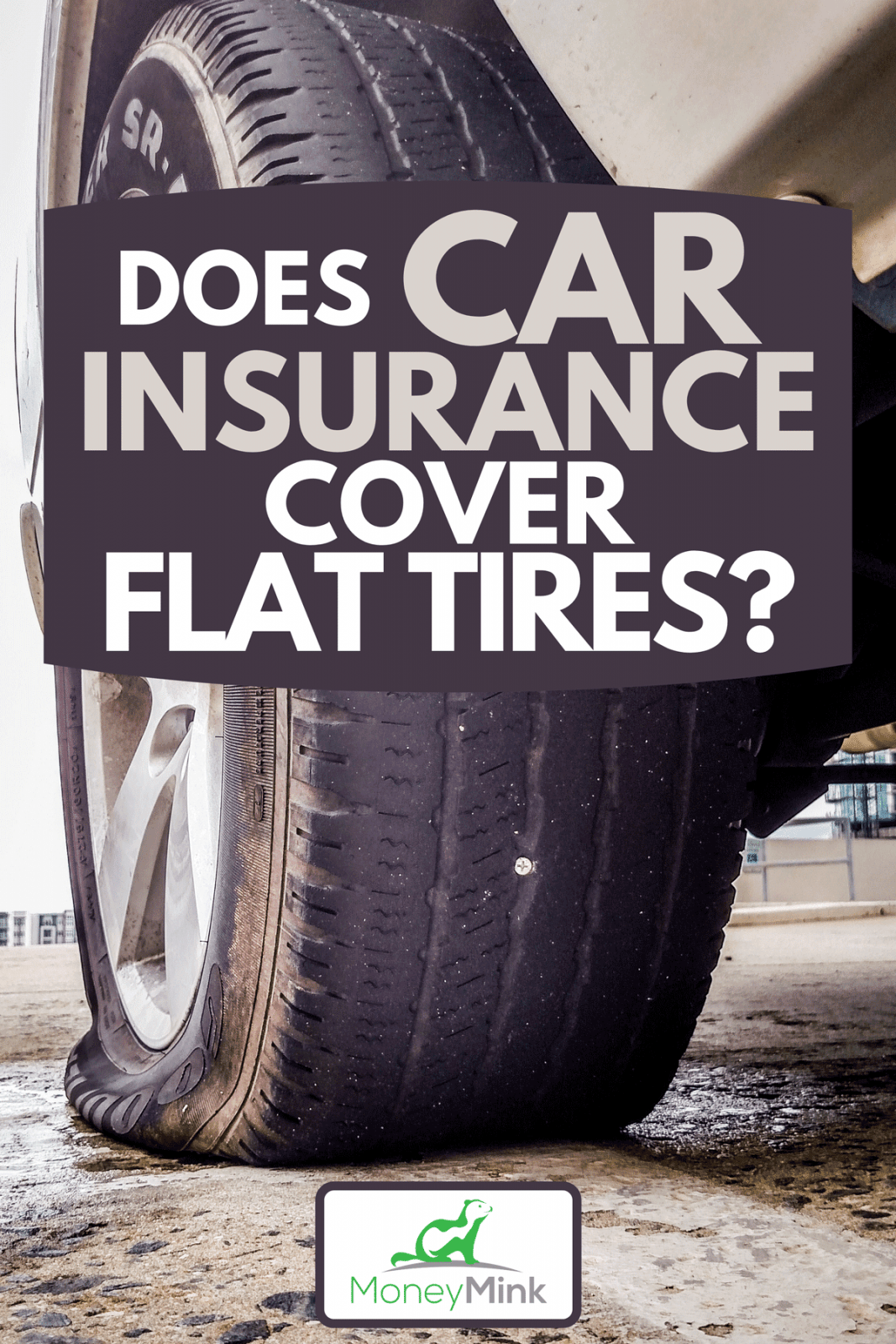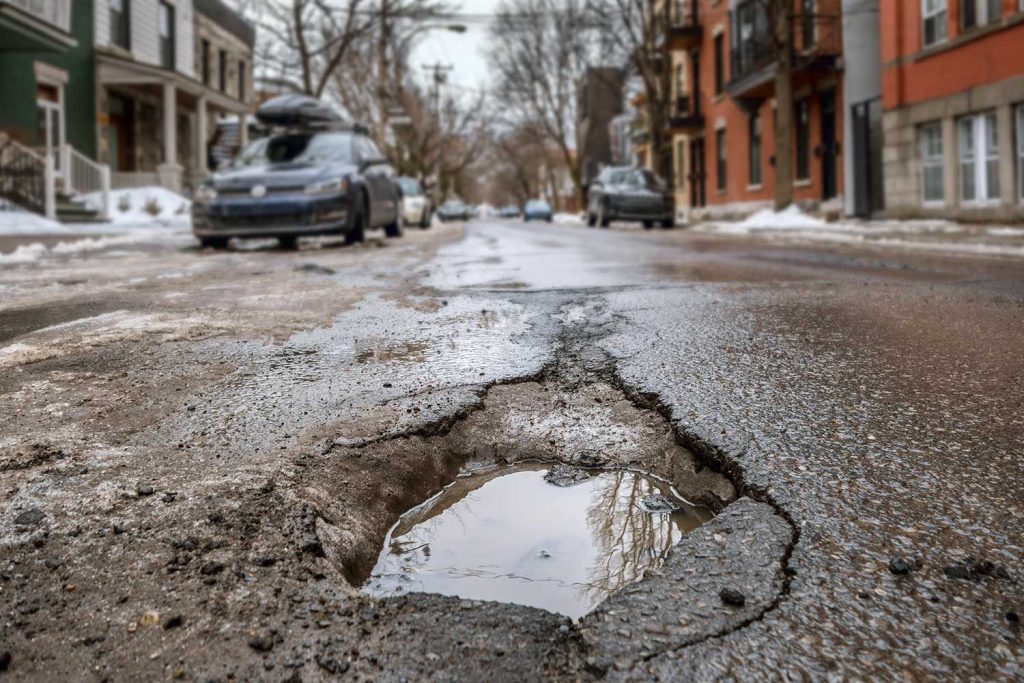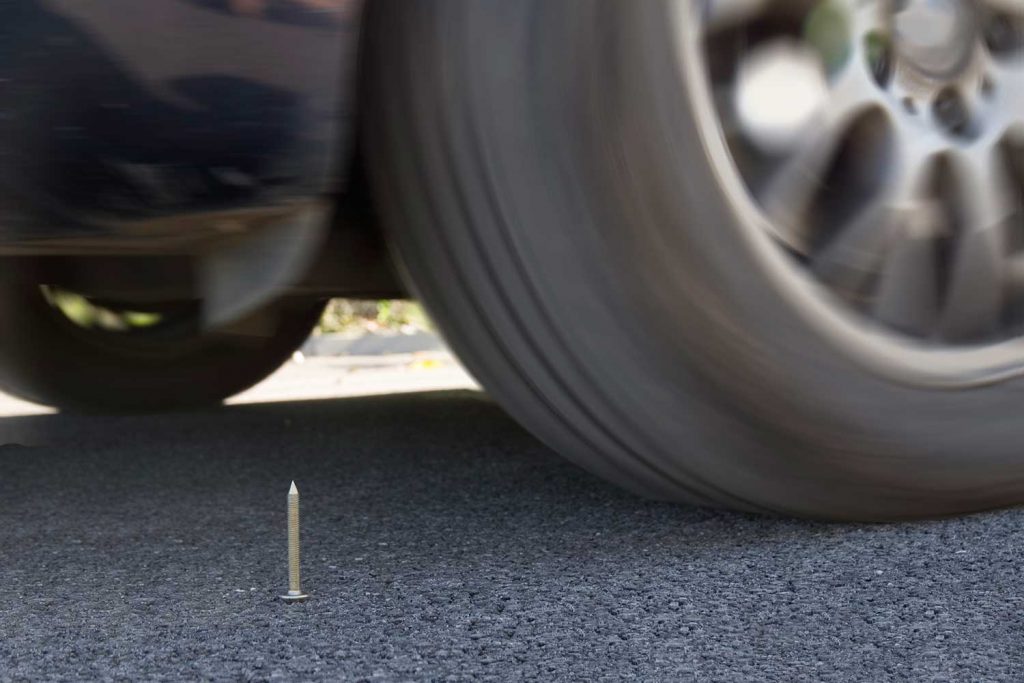If you're like most car owners, you probably pay a monthly insurance premium to cover potential damages to your car. We all know that this insurance will pay for body damage from wrecks. But will they reimburse you for any tire damage? We researched the insurance policies from numerous auto insurance carriers to give you an accurate answer.
Generally, an auto insurance policy will not cover flat tires. However, if your insurance carrier has a comprehensive or full coverage policy, it may cover flattened or damaged tires resulting from vandalism or acts of nature. You may also be able to get additional insurance or protection for tire damage by purchasing a rider on your current policy.
Now that we know that coverage for tire damage will vary from insurance company to insurance company, we'll break down the policies from various auto insurance carriers. Our research provides an in-depth look at what these carriers will offer you and defines the different auto insurance protections. In addition, we'll answer questions you might have about road hazard warranties, the cost of tire and wheel protection, and other items related to your vehicle's tires. To see what we've discovered, read ahead in this post.

What Tire Coverage is Available From Major Carriers?
Every auto insurance carrier has different clauses in their policies, dictating what they will and will not cover. Some will offer better options than their competition, so it's always strongly recommended that you discuss the options you want with your insurance agent. It's ok to shop around, which will allow you to not only get the coverage you want but will maybe lead to a more affordable premium.
Before we discuss the policies from insurance carriers, it's important to discuss policy types. As a general rule, most auto insurance carriers have three tiers of auto coverage. Those levels are liability protection, collision protection, and full coverage/comprehensive protection.
Liability
Liability insurance only protects you financially from the damage you might do to someone else while you're driving your insured vehicle. In the unfortunate case of an accident in which you are at fault, liability coverage will pay to repair the other vehicle. Liability will not cover yours at all. So if your auto insurance policy provides for liability coverage, it will not cover your tires no matter who your insurance carrier is.
Collision
Collision coverage covers your vehicle while you are driving it. So if you sustain damage to your tires while your vehicle is moving (pothole damage, wrecks, etc.), then your tires may be covered.
Comprehensive
Full coverage/Comprehensive insurance covers damage to your vehicle, whether you're driving it or not. Depending upon your carrier, your tires may also be covered with this sort of policy.
Insurance Carriers and their policies
Since we now have a basic understanding of the types of policies auto insurance carriers offer, let's examine six major insurance carriers to see if their policies will cover your vehicle's tires.
American Family
American Family Insurance has comprehensive auto policies that will cover your tires' damage if they are damaged by vandalism or natural disasters. Often, the damage to your tires will be less than your deductible, so you should check your policy carefully before making a claim.
This insurance company will not cover tire damage from roadside hazards. If your tires go flat from hitting an object on the road, or one should pop from bumping through a pothole, you'll have to pay it all out of pocket.
Like most of the carriers, American Family's comprehensive auto policies offer roadside assistance coverage. They'll pay for a tow truck, bring you gasoline if you're empty, help change a tire, among other things. While this won't pay for a new tire, it's good to know that you aren't stranded alone if you've got a flat or an empty fuel tank.
Geico
Geico's full coverage policies will cover your tires if they have been vandalized (slashed, for example) or from damage due to nature. They will not pay for any tires that are damaged due to normal driving or roadside hazards.
State Farm
This auto insurance carrier will cover damage to tires due to vandalism or natural disasters, should you have full coverage. However, they will not provide any coverage to your tires in the event of damage due to roadside hazards. So if you pop a tire from a nail or glass, expect to pay out of pocket.
State Farm does have roadside protection coverage that will cover towing expenses. This coverage will also pay for the labor to change your tires, but not the tires themselves.
All State
All State has several tiers for their full coverage insurance policies that you can review. While all of their full coverage policies will cover tire damage due to vandalism and natural disasters, you will need to have their Platinum package for full tire and wheel protection.
With the All State Platinum coverage, your tires are covered up to $35 apiece for repairs. Should the tire not be repairable, this coverage will pay for a new tire.
Additionally, the Platinum coverage will insure your wheels from damage. If an accident or roadside hazard has made it so your wheel cannot properly seal your tire, then your policy will replace the wheel itself. Mounting, balancing, and tire disposal are also covered.
As a bonus, this policy will reimburse you up to $500 for trip interruption, should you be traveling at least 100 miles from your home.
Progressive
Progressive will offer some coverage for tires if you have their collision or comprehensive policies. If you opted for collision, your tires are covered if they are damaged due to an accident.
This carrier's full coverage policy will protect your tires from natural disasters and vandalism. However, this policy will not protect your tires should they become damaged from roadside hazards. Progressive encourages those who want this additional coverage to obtain it from their tire manufacturer.
Shelter
This auto insurance carrier will cover the damage done to your vehicle in the event of a blown tire. But they will not cover the damage done to the tire itself.
Shelter does offer a roadside assistance program that will cover your expenses up to $100 per occurrence. This will pay for towing, a tire change (but not the tire), and other items.
It's always important to sit down with your auto insurance agent and discuss all of the coverage your current policy offers and any additional policy options available. Should you not have an in-person agent, you should read the fine print of the auto policy yourself. Companies that do not have assigned agents will always have a dedicated representative that can answer any policy or coverage questions by phone. Knowing how you're covered is critical before you go out on the road.
Is It Worth Getting A Road Hazard Warranty On Tires?
If you've ever purchased a new set of tires, you probably recall the tire dealership reviewing the manufacturer's warranty. This is most often a "tread wear" warranty and covers the tires' replacement if the tread is worn down before the guaranteed mileage is met. Any other damage the tire might incur isn't going to be covered by this warranty, as the manufacturer is only guaranteeing its product from premature wear from normal use.
The dealership most likely offered you a road hazard warranty for the tires. This warranty would cover your tires for any damage that might happen to them while you're driving. If a pothole causes your tire to blow out or discover that you have a flat tire from a screw, this coverage will replace your tire.
Is this additional coverage worth it? To answer this question, you need to weigh the warranty cost with your tires' replacement cost.
The cost of road hazard warranties vary from tire manufacturer to tire manufacturer, but they are often inexpensive. Some companies will charge a flat rate of up to $15 per tire, while others will charge a percentage of the tire's original purchase price. The percentage is normally between ten and fifteen percent.
Hypothetically, let's assume you paid $800.00 for a new set of tires. If the manufacture's road hazard warranty is fifteen percent of the sales price, you will pay $120 for the coverage.
As most of these warranties don't have a deductible, that's a pretty good amount of protection for a minimal investment.
However, your auto insurance policy may cover this damage. If that's the case, you may want to consider forgoing roadside hazard protection, depending upon your auto insurance deductible.

What Is Considered A Road Hazard For Tires?
A road hazard is anything that your tire might come into contact with on a roadway that would damage it. The most common types of road hazards are nails, screws, glass, and potholes.
As we mentioned earlier in this post, the manufacturer's warranty on your tires will not cover any road hazards. Your auto insurance carrier might cover this type of damage, should you have a full coverage/comprehensive policy. If you have this coverage, you'd still need to have the damage exceed your deductible amount to receive any reimbursement from your insurance policy.

Does Insurance Cover Slashed Tires?
Whether or not your insurance policy will cover slashed tires will depend upon your insurance carrier and the type of policy you have with that carrier.
As we pointed out earlier in this post, if you have liability-only coverage, you would not be eligible to have your own vehicle's tires covered. This policy only covers the damage you might accidentally do to another vehicle. Your tires would not be covered under collision coverage in this case, as that type of policy will only cover damage done to your vehicle while you're driving it.
If you've paid for full coverage/comprehensive insurance, you may be able to make a claim for your slashed tires successfully. Slashed tires are considered an act of vandalism and would be covered by your policy. Depending on the replacement cost, your total damage may be under your deductible, however.
If you would like to see this brand of car jack on Amazon, click here.
How Much Does Tire And Wheel Protection Cost?
Many auto insurance carriers offer this extra protection in the form of a rider. This coverage will vary from carrier to carrier, but it will generally cover the same types of tire damage mentioned above when we discussed roadside hazard protection. This rider will also give coverage to the wheels, which could be damaged by road hazards.
If it's not already included in your comprehensive auto insurance policy, tire and wheel protection will cost up to $100 annually. Check your current policy carefully to see if you're already covered, and discuss this coverage with your agent or insurance company representative.
In Conclusion
In this post, we learned that you must have insurance other than liability protection to have any amount of insurance on your tires. Collision coverage from major carriers will insure tires due to damage from accidents. Still, you'd need full coverage or comprehensive auto insurance to cover tire damage from acts of vandalism or natural disasters.
We also learned that the manufacturer's warranty only covers the tires from premature wear. For roadside hazard damage, you'll need to purchase separate coverage.
Lastly, it's important to know the limits of your auto insurance coverage. Review your policy carefully so that you know exactly how you and your vehicle are covered. Sitting down and discussing this with your insurance agent makes this easier, as does calling your insurance company and having a representative answer your questions and concerns.
If you enjoyed reading this post about features of your car insurance, you might find the following posts informative:
Can Car Insurance be Backdated?
What Happens When Car Insurance Denies a Claim?
Does Car Insurance Cover Paint Scratches?
Does Car Insurance Decrease or Increase as a Car Gets Older?
Can Car Insurance Companies Find out About Previous Accidents?




